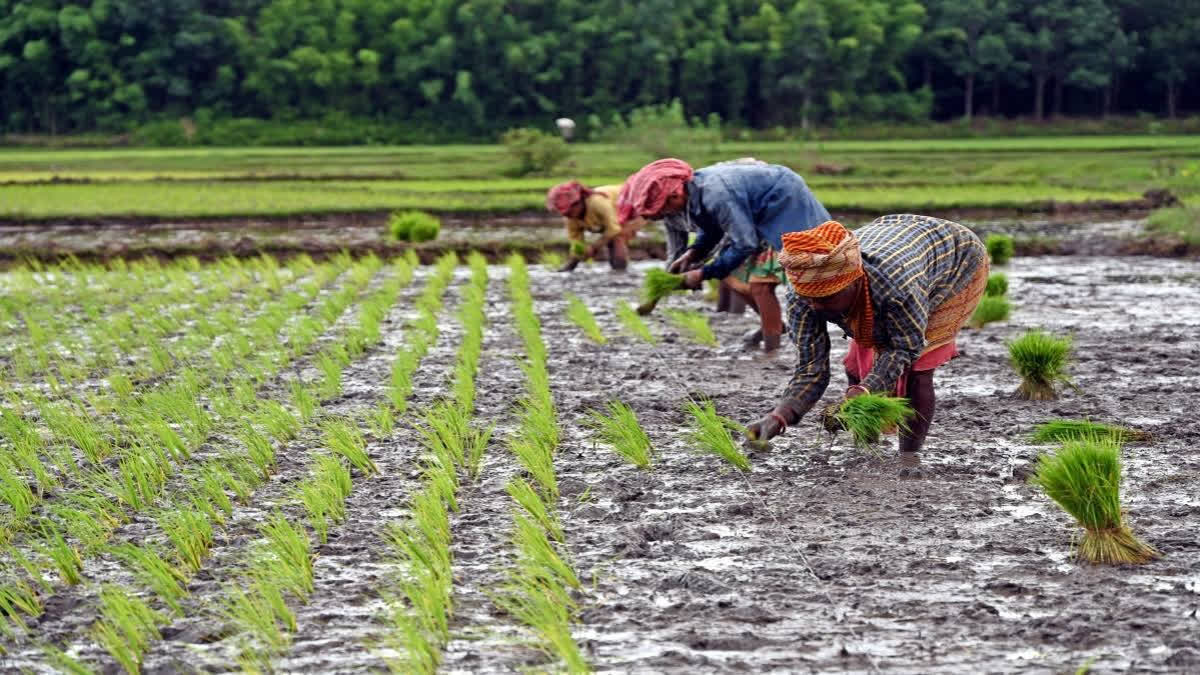New Delhi: The Union Cabinet chaired by Prime Minister Narendra Modi on Monday, September 2, the Union Cabinet approved seven new schemes with a total outlay of ₹14,000 crore, designed to strengthen India's agriculture sector and support farmers across the country.
These initiatives aim to enhance research, education, and digital infrastructure in agriculture while promoting sustainable practices in livestock and horticulture.
- How is the ₹14,000 crore allocated across different areas?
The ₹14,000 crore has been strategically allocated across various sectors within agriculture: Crop Science for Food and Nutritional Security: Nearly ₹4,000 crore has been earmarked for crop science, focusing on food and nutritional security. This program will concentrate on research and education, genetic improvement, and the management of plant genetic resources.
Digital Agriculture Mission: With an investment of ₹2,817 crore, this mission seeks to digitise the agriculture sector. It is built on two foundational pillars: Agri Stack and the Krishi Decision Support System, which aim to enhance digital infrastructure and decision-making capabilities for farmers.
Strengthening Agricultural Education: Around ₹2,300 crore will be used to bolster agricultural education, management, and social sciences. This initiative will modernise research and education in agriculture, aligning it with the New Education Policy 2020.
Sustainable Livestock Health and Production: Approximately ₹1,700 crore has been allocated to improve livestock health and production. This scheme will focus on animal health management, veterinary education, dairy production, and the development of animal genetic resources.
Strengthening Krishi Vigyan Kendras (KVKs): The Cabinet has approved ₹1,202 crore to enhance the KVKs, which are key to connecting agricultural research with practical applications.
Natural Resource Management: Over ₹1,110 crore has been sanctioned for managing natural resources, with an emphasis on sustainable practices.
Sustainable Development of Horticulture: Lastly, ₹860 crore will be dedicated to the sustainable development of horticulture, encouraging the cultivation of various crops, including vegetables, floriculture, and medicinal plants.
- Why are these initiatives important for Indian agriculture?
These schemes aim to prepare Indian farmers for climate-resistant agriculture, ensuring long-term sustainability in the face of environmental challenges. By investing in crop science, livestock health, and digital infrastructure, the government hopes to boost farmers' incomes, improve food security, and promote eco-friendly practices.
- What impact will these schemes have on the agriculture sector?
The allocated funds are expected to accelerate research and development in various areas of agriculture, supporting the scaling up of successful experiments to achieve broader impact. By linking research with practical applications, these initiatives aim to create a more resilient and prosperous agriculture sector in India.



